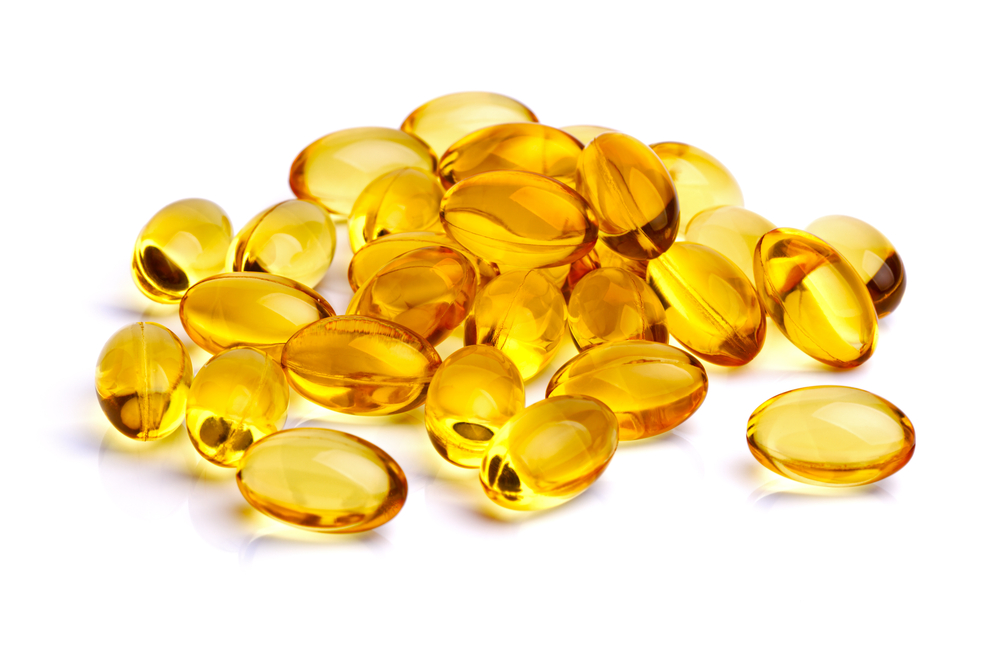Dietary supplements – to take or not to take? That is the question!

Do we have an answer to it? Yes. Take it, naturally! No pun intended, because if we would wholeheartedly recommend dietary supplements with a clear conscience, then only the natural ones. Nowadays, regular supplementation is a must. Why? We will focus on the facts, but to do that, we need to debunk the myths first.

The controversy around dietary supplements
The accusations aroused about the dietary supplements sound like this:
- There is no effect – it doesn’t work!
- It is enough to have a balanced diet and there will be no need for supplements,
- It’s just marketing, tricking the naïve ones,
- Supplements won’t cure me of anything;
Are you nodding your head? If so, it means that you absolutely should read more…
What are dietary supplements?
Dietary supplements are food. Yes! It’s food. Supplements are designed to provide the body with vitamins and minerals, so – to put it simply – do it so that it does not lack anything. It is a concentrated source of nutrients in the form of capsules, tablets, sachets with powder or liquid.

The effects of using dietary supplements
Imagine you are eating lettuce. You know it’s good for you. You realize that eating lettuce (and fruits and vegetables in general) regularly is better than eating fatty meat because lettuce contains vitamins, minerals and is low in calories.
Now think about it – do you expect any immediate effect after consuming lettuce? Do you hope that after a bowl of lettuce you will feel a sudden burst of energy, you will miss a cold, and your body will be more efficient? Probably not. Similarly, it is difficult to expect a quick effect from dietary supplements, which are also food.
You will not change the condition of the body in one day. After a week of using dietary supplements, we should not expect miracles either. However, if you use them regularly, you will certainly feel the effect. Proposal? Well-composed, natural dietary supplements work, you only have to wait a while for the effects. It is not a sprint but a marathon!
A balanced diet is better than supplementation…
It is true, but nowadays – this truth is impossible to achieve. If we look at this problem more broadly, it turns out that the issue becomes more complicated.

Decrease in the nutritional value of healthy products
Let’s swap the lettuce for a banana. According to research conducted by Swiss scientists, in the period from 1985 to 2002, they observed almost a 90% decrease in the number of minerals and vitamins in bananas. Spinach, broccoli and strawberries were also examined. Unfortunately, the conclusion is similar. Such studies were conducted in the USA, Canada, Australia, Great Britain and the results were equally shocking. Our food is still evolving. From complex food, it turns into a nutritionally spoiled source of energy.
If like the majority of society, you do shopping in supermarkets, even assuming that you eat only vegetables and fruits, it would be very, very difficult for you to provide your body with everything it needs.
Food quality is deteriorating drastically
Our everyday life is filled with highly processed food, full of preservatives, with a long and complicated composition, artificial dyes. Packaged ham, microwave-ready dinners, packaged meat with a frighteningly long expiration date – you know it? The caloric value of such products is usually very high, and the content of ingredients having a beneficial effect on the body – low.

Unhealthy eating habits and life habits
Do you like fast food, snacks, sweets? When you are eating them, you can no longer fit those 7.5 oranges necessary to provide 1000 mg of vitamin C to the body.
In turn, an unhealthy lifestyle significantly affects how many vitamins and minerals you absorb from your food. Nicotine and alcohol, lack of sleep, stress, lack of exercise are a recipe for worsening the condition of the body, despite a healthy diet. Interestingly, most Polish people declare that they eat healthily and at the same time confirm that they do not have time to eat their main meal at work. Even more scary is the fact that every second person in the office eats only chocolate bars or sandwiches, and every tenth eats nothing.
So if you are wondering whether you need dietary supplements with a balanced diet, first consider whether your diet is providing you with what your body needs.
Research shows that:
- As much as 90 per cent of Polish people who are considered to be healthy, live with a vitamin D deficiency and 60 per cent of them has a severe deficiency,
According to the Polish-Norwegian dietary study, which included 4,0001 Polish people, people who took part in it did not provide enough nutrients in their diet.
- 90% of the surveyed people consumed too little calcium,
- 90% of people consumed too little vitamin E,
- 96% of the surveyed people consumed too little potassium,
- 70% of respondents did not consume enough magnesium,
- 40% of the surveyed people consumed too little zinc,
- 50% of respondents consumed too little vitamin C.
Nutrient deficiencies – how to recognize them and what do they lead to
Often we are unaware of deficiencies, but we feel that something is not as it should be.
- Sleepiness, constant exhaustion,
- frequent infections,
- overweight and obesity, underweight,
- irritability,
- worse mental and physical efficiency,
- problems with hair, nails and skin
– these may be warnings suggesting a deficiency your body is sending you. Meanwhile, deficiencies of vitamins, minerals and nutrients increase the risk of certain diseases, such as osteoporosis, atherosclerosis and anaemia. That is why it is worthwhile to focus on supplementing the diet with supplements.

What will dietary supplements cure you of?
The convenient way of dosing dietary supplements – capsules, bottles with liquid, sachets with powder – causes them to be confused with medicines. TV commercials suggest that dietary supplements can help us fight civilization diseases and more. Remember that dietary supplements are not drugs and absolutely should not be used as a substitute for drugs. They will not cure you of your disease but can help your body fight the threat more effectively, especially as your body needs more nutrients during illness – especially energy, protein and essential vitamins. So look at supplements as high-concentration, good-quality food, then everything will be clear.
See also: Supplementation during spring, i.e. conscious taking care of yourself
How to find valuable dietary supplements?
Currently, you can find on the market cheap dietary supplements and expensive dietary supplements, which seem to contain the same substance. Is there a difference? If so, what kind? If someone sells you a dietary supplement for 200£, are they trying to cheat you? No. Dietary supplements are not only marketing.
Now let’s move to the supermarket, and more specifically – let’s go to the red wine shelf. You can buy wine for 3£ (from the lowest shelf), wine for 20£, and even for 100£. Now think about the effect. You must have heard that drinking red wine is beneficial for the body, because the substances contained in it fight free radicals, protect against atherosclerosis and heart attack. However, I predict that red wine for 3£ will do more harm than good to your body. However, it has the same name as the one for 100£ – and both products are red wine.
It is very similar to dietary supplements. The best, natural, and purest ingredients in dietary supplements are quite expensive. The method of treating them is also an expensive matter. Also important is the question of filler, capsules and so on and so on. The production of synthetic preparation is nowadays cheap and easy. There is also a demand for them, which is why they are flooding store shelves. Consumers unfamiliar with the topic usually choose a less pricy product. Often, however, the active substances in such supplements are very poorly absorbed. As you can see, saving isn’t always the best way.
However, the fact that cheap supplements tend to be of poor quality does not mean that there are no good quality supplements. They exist and can be invaluable support for the body, especially if you:
- lead an active lifestyle,
- eat on the go,
- eat processed foods,
- mental and physical effort is familiar to you,
- exercise,
- want to strengthen your natural immunity,
- focus on prevention,
- are exposed to stress,
- use nicotine, alcohol and caffeine, even occasionally,
- feel chronic fatigue,
- noticed that your hair is falling out, your nails are splitting,
- the complexion is grey despite care.

How to make a good choice when choosing a dietary supplement?
Finally, I have a few tips for you on how to choose the best natural dietary supplements.
- Search for supplements with natural extracts,
- Use common sense – do not believe in the assurances of an immediate, long-term effect,
- Look for supplements standardized for a specific vitamin and mineral content,
- Read about ingredients and compare products,
- Do not blindly trust the advertisements and opinions of others,
- Do not choose the cheapest preparations.
